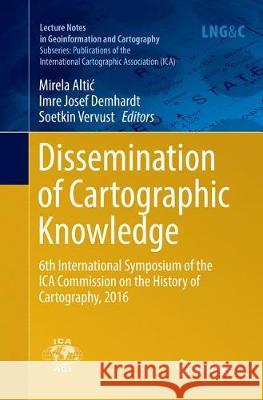Dissemination of Cartographic Knowledge: 6th International Symposium of the Ica Commission on the History of Cartography, 2016 » książka
topmenu
Dissemination of Cartographic Knowledge: 6th International Symposium of the Ica Commission on the History of Cartography, 2016
ISBN-13: 9783319870984 / Angielski / Miękka / 2018 / 390 str.
Dissemination of Cartographic Knowledge: 6th International Symposium of the Ica Commission on the History of Cartography, 2016
ISBN-13: 9783319870984 / Angielski / Miękka / 2018 / 390 str.
cena 806,99 zł
(netto: 768,56 VAT: 5%)
Najniższa cena z 30 dni: 771,08 zł
(netto: 768,56 VAT: 5%)
Najniższa cena z 30 dni: 771,08 zł
Termin realizacji zamówienia:
ok. 22 dni roboczych
Bez gwarancji dostawy przed świętami
ok. 22 dni roboczych
Bez gwarancji dostawy przed świętami
Darmowa dostawa!
Kategorie BISAC:
Wydawca:
Springer
Seria wydawnicza:
Język:
Angielski
ISBN-13:
9783319870984
Rok wydania:
2018
Wydanie:
Softcover Repri
Ilość stron:
390
Oprawa:
Miękka
Wolumenów:
01











